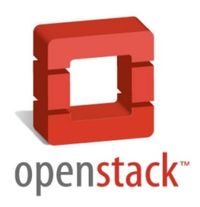
As I noted Friday in writing about CenturyLink (the former Qwest, the former US West), telcos see OpenStack as their best move against Amazon, Google, and the obsolescence that comes with being a 19th century technology platform.
This is great news for OpenStack, bringing with it a bunch of really committed programmers, backed by heavy corporate sponsors. But it's also a challenge to Rackspace, the main sponsor.
That's because telcos remain Clueless, and always will be. Like newspaper owners, telco executives think they control monopolies, even when they don't.
So there will be two temptations among the "CenturyLink," "AT&T" and (let's call it) "Verizon" programming teams moving toward OpenStack:
- The temptation to tweak the software in order to maintain customer control.
- The temptation to fork the software and run off with the code.
These sound like the same temptation, but they're not. If you tweak the software you're keeping up with the latest releases. If you fork it, you're creating a new branch of the software tree entirely.

My own view is it won't work, in the long run, because this is a competitive, fast moving business and no telco has ever succeeded in that environment. What they're best at is following trends and then using scale, money, lawyers, and lobbyists to muscle out innovation. This is what they did in the consumer ISP space. It's what they think they're going to do in the cloud space.
But I see FAIL in their future. Because what they're going to find out very soon is that, like the newspapers, they're not monopolists at all. They're not even the low-cost provider — Google is. And that when people have choices, they reject the old monopolists as surely as Netizens reject dictators and other gatekeepers.
So this will end in tears, but meanwhile I hope OpenStack can get some help, because an open stack cloud is a very good thing.











The presenter was very transparent about his experience with OpenStack. They had work that needed to be done but they were short on budget
The presenter was very transparent about his experience with OpenStack. They had work that needed to be done but they were short on budget